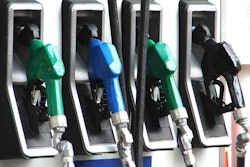House Ways and Means Committee Chairman Rep. Paul Ryan (R-Wis.) opened a long-awaited hearing infrastructure funding by restating his clear opposition to raising fuel taxes.
The federal government typically spends about $50 billion per year on transportation projects, but the federal gas tax – a per-gallon tax that traditionally funds transportation investments, but has not changed since 1993 – only brings in about $34 billion annually. The Congressional Budget Office has estimated it will take about $100 billion to close the gap long enough to pay for a six-year transportation funding bill.
Sign a Petition to Fix the Highway Trust Fund This July
"There’s not much happening in this economy to help it grow, but lower gas prices is one of them,” Ryan said. “[Working families'] paychecks haven’t grown much at all. And now they’re finally catching a break. It would be downright unfair to take that away from them. So we are not raising gas taxes — plain and simple."
Labor unions and business groups have shown rare solidarity in supporting an increase in the federal gas tax proposed by transportation advocates, but Ryan prefers an alternative plan known as repatriation. It would tax overseas corporate revenue to pay for a long-term transportation bill. Repatriation gives businesses a reprieve from penalties for avoiding prior taxes if they agree to move money back to the United States and pay a 6.5 percent tax rate on it.
President Obama has also said he is in favor of repatriation but argues tax on overseas profits should be mandatory and collected at a higher rate.
(more on the latest gas tax debate for transportation funding...)
Study: Only a Third of Gas Tax Increases Reflected in Pump Prices


















